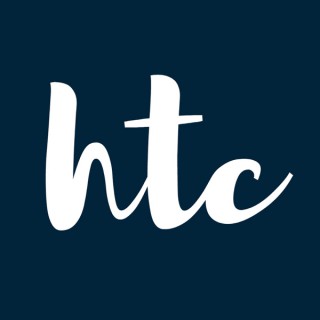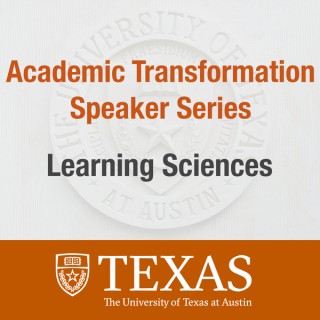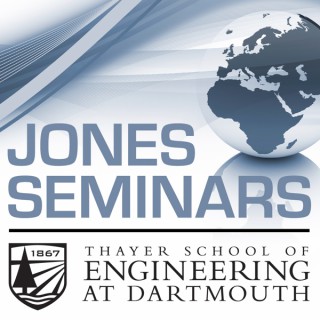Podcasts about area dean
Clerical title in some Christian churches
- 14PODCASTS
- 18EPISODES
- 41mAVG DURATION
- ?INFREQUENT EPISODES
- Dec 4, 2025LATEST

POPULARITY
Best podcasts about area dean
Latest podcast episodes about area dean
Canterbury Cathedral Dean - The Very Reverend Dr David Monteith - The God Cast Podcast.
Dean of CanterburyDavid was installed in December 2022 as the 40th Dean of Canterbury (post Reformation) heading up a staff of 250 and over 500 volunteers; leading the mother church of the Anglican Communion.He chairs the College of Deans for the Church of England. Prior to this he was Dean of Leicester in the East Midlands where he was responsible for the re-interment of King Richard III after his find in a ‘car park' and the redevelopment of the cathedral in one of Britain's most diverse cities where he also chaired the inter-faith ministry of the diocese. He also served as Associate Vicar of St Martin-in-the-Fields, London and as an Area Dean in Wimbledon, first being ordained in the Diocese of Birmingham in 1993. His interests focus on faith in the public realm, change, culture and the arts.He grew up in Enniskillen, Northern Ireland and shares his life in a Civil Partnership with David Hamilton and their lurcher dog Barney.
Liverpool - Former Bishop of Liverpool - Paul Bayes The God Cast Interview
Bayes was ordained in the Church of England, made a deacon at Petertide 1979 (1 July)[6] and as a priest the Petertide following (29 June 1980), both times by Ronnie Bowlby, Bishop of Newcastle, at Newcastle Cathedral.[7][8] He was an assistant curate at St Paul's Church, Whitley Bay for three years (1979–1982). He then became a university chaplain in west London from 1982 to 1987.[3] Bayes moved to High Wycombe for seven years where he initially as Team Vicar (1987–1990) and then Team Rector (1990–1994) before becoming Team Rector of Totton for nine years (1995–2004). While he was at Totton, Bayes was also the Area Dean of Lyndhurst from 2000. Upon leaving Totton, he joined the Archbishops' Council staff team as National Mission and Evangelism Adviser until his ordination to the episcopacy. He was also an honorary canon at Worcester Cathedral from 2007 until his consecration.[3] Episcopal ministry On 7 July 2010[3] it was announced that Bayes would succeed Christopher Foster as Bishop of Hertford upon Foster's translation to Portsmouth.[5] Bayes was duly consecrated a Church of England bishop on 21 September 2010 at St Paul's Cathedral[9] and installed at St Albans Cathedral on 25 September 2010.[10] On 7 May 2014 it was announced that Bayes was to become the next (8th) Bishop of Liverpool; his canonical election was confirmed on 23 July 2014.[2] Bayes was installed at Liverpool Cathedral on 15 November 2014. Bayes is the Visitor of St Peter's College, Oxford;[11] he was chosen from among the Church's diocesan bishops, and may serve until he ceases to be one.[12]
About Bishop Rob Before his appointment as Chief Executive of CUF, Robert Wickham served as the Bishop of Edmonton since September 2015. He was a Curate in the Parish Church of Willesden, a Team Vicar in the Parish of Old St Pancras, with a particular responsibility for St Mary's Somers Town, and then for nine years as Rector of St John at Hackney, latterly becoming Area Dean of Hackney. Rob grew up in suburban Surrey, and attended Hampton School. He then went to University in Durham, where he studied geography, especially urban regeneration, and perceptual geography. He then studied for ordination at Ridley Hall, Cambridge. Since ordination Rob has completed an MA in Theology, Politics and Faith Based organisations from King's College. His thesis, now published, was based upon the political theology of Joshua Watson, the great Church Schools pioneer from the eighteenth century. In addition, a period of study leave led Rob to write a theological thesis on the creative use of church buildings. Indeed, whilst Rector of Hackney, the Church of St John at Hackney was reordered so that most aspects of Hackney life could be experienced, from concerts by Coldplay, Gary Barlow and Emilie Sande, jobs fairs, credit unions, to the most used knife amnesty bin in London. The reordering led to a reordering of its relationship with the local community, which became so needed in the aftermath of the disturbances in 2011.
Book Club Podcast: Richard Lamey on Two Storm Wood by Philip Gray
Two Storm Wood by Philip Gray is the choice for this month's Church Times Book Club. On the podcast this week, Richard Lamey, who has written this month's essay about the book, is in conversation with Sarah Meyrick. Two Storm Wood is set immediately after the First World War, when special battalions were given the grim task of retrieving the dead from the battlefields of northern France. A bold young woman, Amy Vanneck, sets out across the Channel to find out what became of her fiancé, who was listed as “missing, presumed dead”. Her search uncovers some unsettling truths, not only about her fiancé, a former teacher and choirmaster, but the other young soldiers traumatised by the hell of trench warfare. The novel picks up pace and tension as a gruesome discovery is made by Captain Mackenzie, and, together with Amy, a hunt begins to track down the psychopath responsible for this atrocious war crime. Canon Richard Lamey is the Rector of St Paul's, Wokingham, and Area Dean of Sonning, in the diocese of Oxford. The Church Times Book Club is run in association with the Festival of Faith and Literature. Sign up to receive the free Book Club email once a month. Featuring discussion questions, podcasts and discounts on each book: churchtimes.co.uk/newsletter-signup Discuss this month's book at facebook.com/groups/churchtimesbookclub
Book Book Club Podcast: Richard Lamey on My Father's House by Joseph O'Connor
My Father's House by Joseph O'Connor is the choice for this month's Church Times Book Club. On the podcast this week, Canon Richard Lamey, who has written this month's essay about the book, is in conversation with Sarah Meyrick. Read the essay here: https://www.churchtimes.co.uk/articles/2023/2-june/books-arts/book-club/book-club-my-father-s-house-by-joseph-o-connor My Father's House is a historical thriller set in Rome in 1943, when the city was under Nazi occupation. The story follows the journey of a group of Jews, diplomats, and escaped Allied prisoners who try to flee Italy. They take refuge in the Vatican City, and their escape is facilitated under the guise of a choir, by a courageous Irish priest. Tension builds as the Gestapo begin to suspect the priest's secret operation. The novel is based on a true story, and is a retelling of the workings of the Rome Escape Line, covering the heroic work of Mgr Hugh O'Flaherty. My Father's House is published by Harvill Secker at £20 (Church Times Bookshop £18); 978-1-78730-082-8. Canon Richard Lamey is the Rector of St Paul's, Wokingham, and Area Dean of Sonning, in the diocese of Oxford. The Church Times Book Club is run in association with the Festival of Faith and Literature: https://faithandliterature.hymnsam.co.uk Sign up to receive the free Book Club email once a month. Featuring discussion questions, podcasts and discounts on each book: churchtimes.co.uk/newsletter-signup Discuss this month's book at facebook.com/groups/churchtimesbookclub Try 10 issues of the Church Times for £10 or get two months access to our website and apps, also for £10. Go to churchtimes.co.uk/new-reader
A real privilege to have Rev'd Phil Medley Team Rector of Byker and Walker and Area Dean of Newcastle East come and speak to us at Holy Cross Fenham as our 11th special guest speaker on our life affirming course entitled “Which Way For The Church? ”. Be encouraged as you listen to this podcast.
Weekly Service for the Third Sunday before Advent - Sunday 7 November 2021
This week's service of the Word is led by Rev Canon Douglas Machiridza, Area Dean of Handsworth & Central.
Revd Nick Parker, Area Dean of Yardley and Solihull, leads this morning's service and speaks on Ephesians 1:15-23 The post Holy Communion – Ephesians 1:15-23 appeared first on Elmdon Church, Solihull.
This morning's service is led by Revd Nick Parker, Area Dean of Yardley and Solihull, and Richard Huss preaches on Amos 9:11-15, bringing us to the end of our series. The post Holy Communion – Amos 9:11-15 appeared first on Elmdon Church, Solihull.
Easter. It's the biggest weekend on the Christian calendar, but the church buildings are closed thanks to the coronavirus pandemic. Clergy across the world are adapting and meeting their congregations online. But why's COVID-19 happening, or more specifically, why's God letting it happen? It's a question that all of the clergy in this podcast have addressed, along with others. All of the contributors recorded their responses to the same questions.UK Prison Chaplain, Elaine WykesAnglican Priest, Melbourne, Victoria: Valentina EmmanuelAnglican Priest for the parish of the Goldfields, Western Australia: Elizabeth SmithPastor, Highland Park Baptist Church, Austin, Texas: Cheryl KimbleArchdeacon of Essendon, Victoria: Vanessa BennettVicar and Area Dean of the Bellarine area Deanery, Victoria: Elizabeth BreakeyParish of North Beach, Perth: Reverend Frida LemiMusic tracks provided by https://www.purple-planet.com thank you.Here's a transcript of this podcast: https://www.wattswhere.co.uk/transcript-together-in-isolation
Every Contact Leaves A Trace, Jonathan Hillman, Area Dean
Hosted by Revd Joe Pienaar, Vicar of St.Hugh's & Area Dean of Luton. So often we look at what Jesus said (His words) and what he did (His works), but fail to consider the way in which he conducted ministry (His ways). We will spend time exploring the doctrines of Missio Dei, Trinity and Incarnation and the theme of ‘Family on mission’ as Jesus way of bringing these three doctrines together in a lived reality – a life lived in mission.
Our Guest this weekend was the Area Dean, Rev Anthony. He preached to us from John's account of Jesus clearing the temple, encouraging us to consider the things in our own life that stop us from putting God first.
Hear as Bishop Richard Cheetham commissions Caroline Clarke as the Area Dean for Lambeth North. 1 Thessalonians 1:1-10
A personal account of God's presence during a period of depression when he was young man from our Area Dean. Focussed on Psalm 23.
Scientific teaching - Using classroom data to improve learning and teaching
Discussions of teaching -- even some publications -- abound with anecdotal evidence. Our intuition often supplants a systematic, scientific approach to finding out what works and what doesn't work. Yet, research is increasingly demonstrating that our gut feelings about teaching are often wrong. In this talk, Dr. Mazur will discuss how he uses classroom data to make decisions about how he teaches and to change how his students learn. About Dr. Mazur Eric Mazur is the Balkanski Professor of Physics and Applied Physics at Harvard University and Area Dean of Applied Physics. An internationally recognized scientist and researcher, he leads a vigorous research program in optical physics and supervises one of the largest research groups in the Physics Department at Harvard University. In addition to his work in optical physics, Dr. Mazur is interested in education, science policy, outreach, and the public perception of science. He believes that better science education for all -- not just science majors -- is vital for continued scientific progress. To this end, Dr. Mazur devotes part of his research group's effort to education research and finding verifiable ways to improve science education. In 1990 he began developing Peer Instruction, a method for teaching large lecture classes interactively. Dr. Mazur's teaching method has developed a large following, both nationally and internationally, and has been adopted across many disciplines, all over the world. Professor Mazur is also a founder of Learning Catalytics, a cloud-based technology that enables instructors to engage students with authentic formative assessments in real time, and rich data analytics to drive student interactions. About Making Decisions with Data The Making Decisions with Data website is a collaboration of the Texas Higher Education Coordinating Board (THECB) and The University of Texas at Austin designed to help educators use data to make decisions that improve teaching and learning. The website is designed for a range of educators, including teachers and administrators at the K-12 and post-secondary levels.
Scientific teaching - Using classroom data to improve learning and teaching
Discussions of teaching -- even some publications -- abound with anecdotal evidence. Our intuition often supplants a systematic, scientific approach to finding out what works and what doesn't work. Yet, research is increasingly demonstrating that our gut feelings about teaching are often wrong. In this talk, Dr. Mazur will discuss how he uses classroom data to make decisions about how he teaches and to change how his students learn. About Dr. Mazur Eric Mazur is the Balkanski Professor of Physics and Applied Physics at Harvard University and Area Dean of Applied Physics. An internationally recognized scientist and researcher, he leads a vigorous research program in optical physics and supervises one of the largest research groups in the Physics Department at Harvard University. In addition to his work in optical physics, Dr. Mazur is interested in education, science policy, outreach, and the public perception of science. He believes that better science education for all -- not just science majors -- is vital for continued scientific progress. To this end, Dr. Mazur devotes part of his research group's effort to education research and finding verifiable ways to improve science education. In 1990 he began developing Peer Instruction, a method for teaching large lecture classes interactively. Dr. Mazur's teaching method has developed a large following, both nationally and internationally, and has been adopted across many disciplines, all over the world. Professor Mazur is also a founder of Learning Catalytics, a cloud-based technology that enables instructors to engage students with authentic formative assessments in real time, and rich data analytics to drive student interactions. About Making Decisions with Data The Making Decisions with Data website is a collaboration of the Texas Higher Education Coordinating Board (THECB) and The University of Texas at Austin designed to help educators use data to make decisions that improve teaching and learning. The website is designed for a range of educators, including teachers and administrators at the K-12 and post-secondary levels.
The Scientific Approach to Teaching: Research as a Basis for Course Design
Presented by Eric Mazur, Area Dean of Applied Physics, Balkanski Professor of Physics and of Applied Physics, Harvard University

















